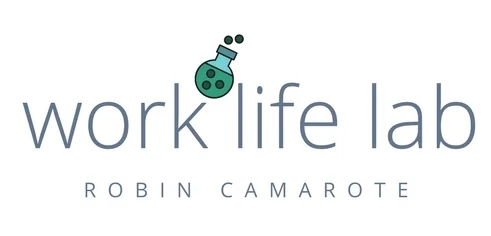It's been a crazy week. Nearly everyone I've crossed paths this week seemed up to their eyeballs in something. It's times like these when we're both busy and suspect there are better things we could be doing (such as enjoying the summer) that we search for not-yet-tried productivity tips, hacks, and solutions.
Personal productivity is tricky. We all want to optimize our impact, but the goal seems elusive. Some days, I feel incredibly productive, while other days, I’m just busy. I know other people worry about their productivity, too: about 99 percent of the articles online for Fast Company alone have something to do with increasing our own impact for our time spent working. The message here is that if we’re just better at using our own time, things at work will get better.
The demand for articles on productivity reveals a lot more about what we’re worried about at work—on a personal level—than it actually changes any of our distracting, counterproductive habits. The truth is we all have varying degrees of productivity and our own yardsticks to measure ourselves and others. There really is no absolute standard for knowledge worker productivity.
And when it comes to productivity, no matter how much we’re doing, we all worry that it’s not enough. Will my boss think it’s enough? Will my clients be disappointed? Will my coworkers think that I’m not pulling my weight? All these are common concerns but are they worth the continuous retooling of your “to do” list?
The issue with focusing on this tough-to-quantify characteristic is that even if we were all off the charts in terms of our productivity, it doesn’t necessarily mean that our business is better or clients are happier because of it.
Solutions flash across our brains in a matter of seconds. With the right conditions lined up, we can effect change in the course of a day—or a week. And this could be the change the makes all the difference. Focus pushes us toward something big and meaningful.
Contrast that with the slog we’re often more familiar with. We chip away at big, amorphous problems and settle for progress in the smallest possible increments. Worrying about our own productivity within that system seems really dejecting. Working harder or more diligently on a problem that will never or should never be solved is an unfulfilling way to live and work.
The other problem with worrying about productivity is the concern that someone senior to us isn’t going to think we’re sufficiently productive so we hold off asking for anything else. Until we’re feeling like we’re at the top of our game and are producing everything they’ve asked, plus a little more, these little worries around our worth and value linger.
Often times, the best way to generate ideas to is stop putting so much pressure on ourselves and our teams to produce them. Let them simply come to us whether it be a quiet moment or part of a team discussion, a highly productive day or simply a day when we’re busy. In the end, it’s the idea that may be of greatest importance, not the productivity that surrounded it.
